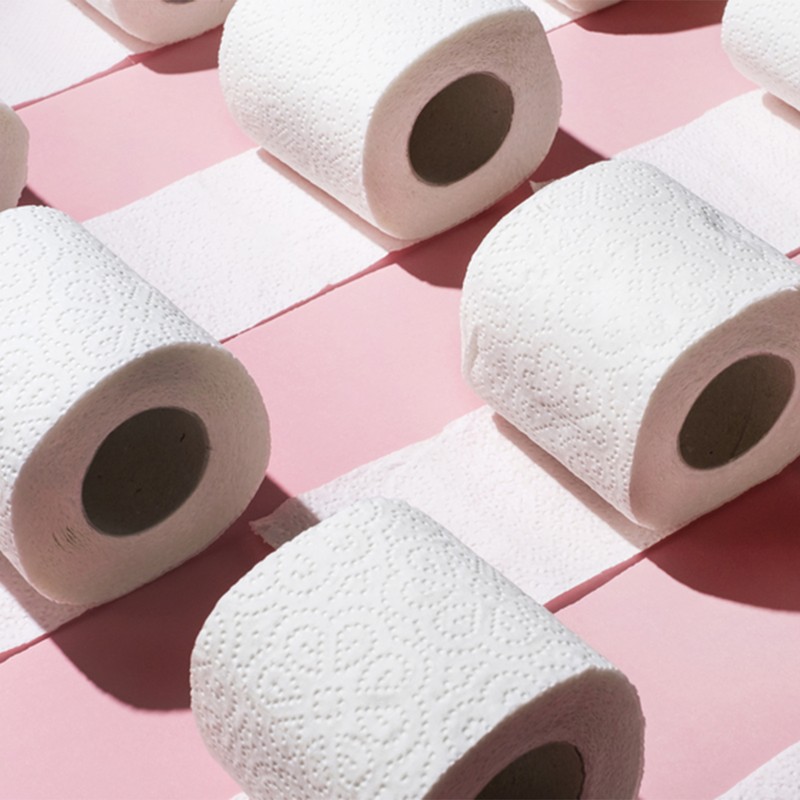What Your Poo Can Tell You About Your Health
Is your poo a true reflection of what’s happening in your gut?
“Your stools can be a goldmine of information about your gut health. All toddlers and children are mesmerised by bathroom habits, but we quickly lose sight of this bodily function. Taking an interest in and checking your stools can give you valuable information about your digestion, gut function and overall health.” – Lisa Das, consultant gastroenterologist at OneWelbeck
What should you be looking for?
“Altered colour (think green, red or black); shape (sausage-shaped, hard pellets or broken bits); and texture (hard, soft or watery) of your stool may reveal signs of dehydration, infection, digestive issues or more serious health problems, such as cancer. If you recognise any of these traits in your stools, always see your GP.” – Lisa
Should it sink or float?
“Your stool’s buoyancy (floating or sinking) can reflect how your body is metabolising fats. Your stools should, on the whole, sink. If your stool is solid and only occasionally floats, there’s no cause for concern. However, if your stools float regularly, it could be a sign you aren’t digesting fats. It’s important to monitor your stools for regularly soft, floating, fluffy stools or an oily residue that coats the bowl of the loo. If there are any changes that persist for over two weeks, pop in to see your GP.” – Lisa
What does it mean if you see a bit of blood?
“Occasional scant, fresh red blood on your loo paper or on the outside of the stool is extremely common. It may be related to haemorrhoids or piles. If you are concerned, or if this persists over two weeks, seek medical advice. Severe, ongoing or very painful bleeding from your bottom may indicate a more serious underlying problem and should never be ignored.” – Lisa
How often does the average woman go to the loo?
“A study looking at people’s pooping frequency found 96% of people opened their bowels between three times a day and three times a week. Once a day was most common, but only 36% of women (and 38% of men) actually pooped this regularly. And for those that went less than three times a week, this was more common in women (3.5%) than men (0.6%). If you poop more than three times a day or less than three times a week it’s worth a check-in with your GP.” – Dr Megan Rossi, registered dietitian, nutritionist and author of Eat Yourself Healthy
Why do women go the loo more when they have their period?
“Feeling bloated or pooping more during your period is completely normal. Having looser stools at this time is due to changes in hormones - progesterone falls and a group of lipids called prostaglandins increase. These hormonal changes impact how fast your gut processes food and absorbs liquid, and can ultimately trigger diarrhoea and smelly gas.” – Megan
How common is constipation?
“Constipation is a common condition that affects around one in seven British adults. It affects twice as many women as men and is more commonly seen in older adults and during pregnancy. However, it’s important to note all constipation is different and symptoms vary widely. It can be short or long term and doesn’t always mean infrequent stools – other symptoms include abdominal pain, not having the urge to go, a sense of incomplete evacuation, or noisy and smelly wind.” – Lisa
Why do you get constipation when you’re on holiday?
“This is often down to the disruption of one’s normal schedule, including dietary changes, altered sleep patterns, both the night before a flight and the lack thereof on board, and differing time zones. Air travel is also extremely dehydrating and our water intake rarely meets our needs when we travel. Lastly, even when travel is for pleasure, it can be stressful and provoke anxiety, which can aggravate gut symptoms.” – Lisa
How common are piles?
“Haemorrhoids (aka piles) most commonly occur in people between the age of 45 and 65, affecting 4-13% of people. Although there is a genetic element to piles, you can reduce your risk by avoiding constipation and prolonged straining on the toilet or straining when lifting heavy objects.” – Megan
Is it true you should poo in a squatting position?
“It can certainly help. Sitting upright to empty the bowels is not natural – two-thirds of the world’s population still squat, bend their knees and stick their bottom out when they poo. Western toilet use is now implicated in many abdominal disorders, including constipation, bloating and possibly haemorrhoids. In short, sitting in an upright position means the rectum cannot straighten fully – using a toilet stool can help.” – Lisa
Can colonics help with your bowel movements?
“Colonics can help to relieve constipation in the short-term, but there are huge risks associated with this type of treatment. I wouldn’t generally recommend them. There is no evidence to suggest colonics are effective in removing toxins, boosting energy or enhancing the immune system.” – Megan
Finally - how many grams of fibre should you aim for daily for better poop health?
“When it comes to gut-boosting fibre, studies show adults should aim for at least two pieces of fruit, five portions of vegetables, three portions of wholegrains and one to two portions of nuts, seeds or legumes each day. This will generally deliver around 30g of fibre, which is the ideal amount for optimum gut health.” – Megan
For more information on what to look for when you go to the loo, the Bristol Stool Chart can help. To book an appointment with Dr Megan Rossi click here; to book an appointment with Dr Lisa Nas click here.
DISCLAIMER: We endeavour to always credit the correct original source of every image we use. If you think a credit may be incorrect, please contact us at info@sheerluxe.com.






